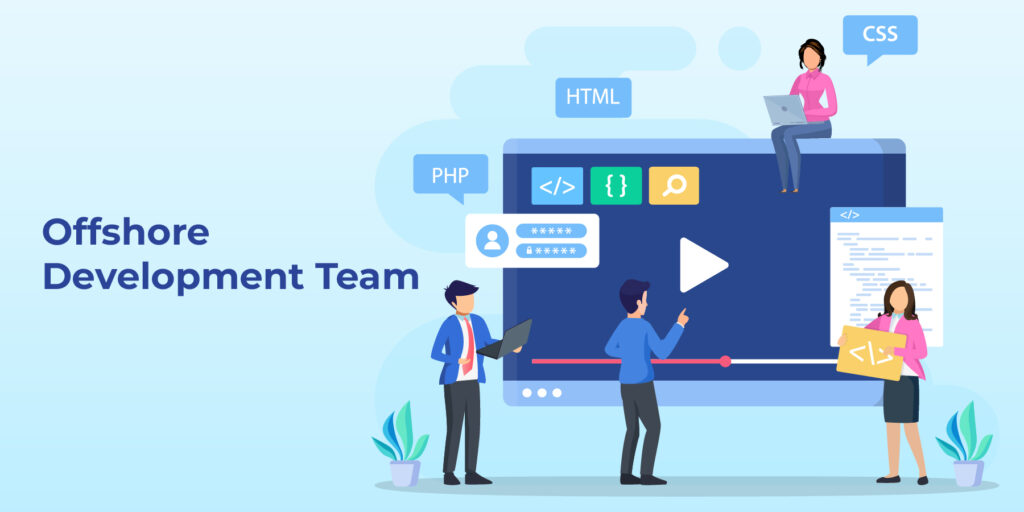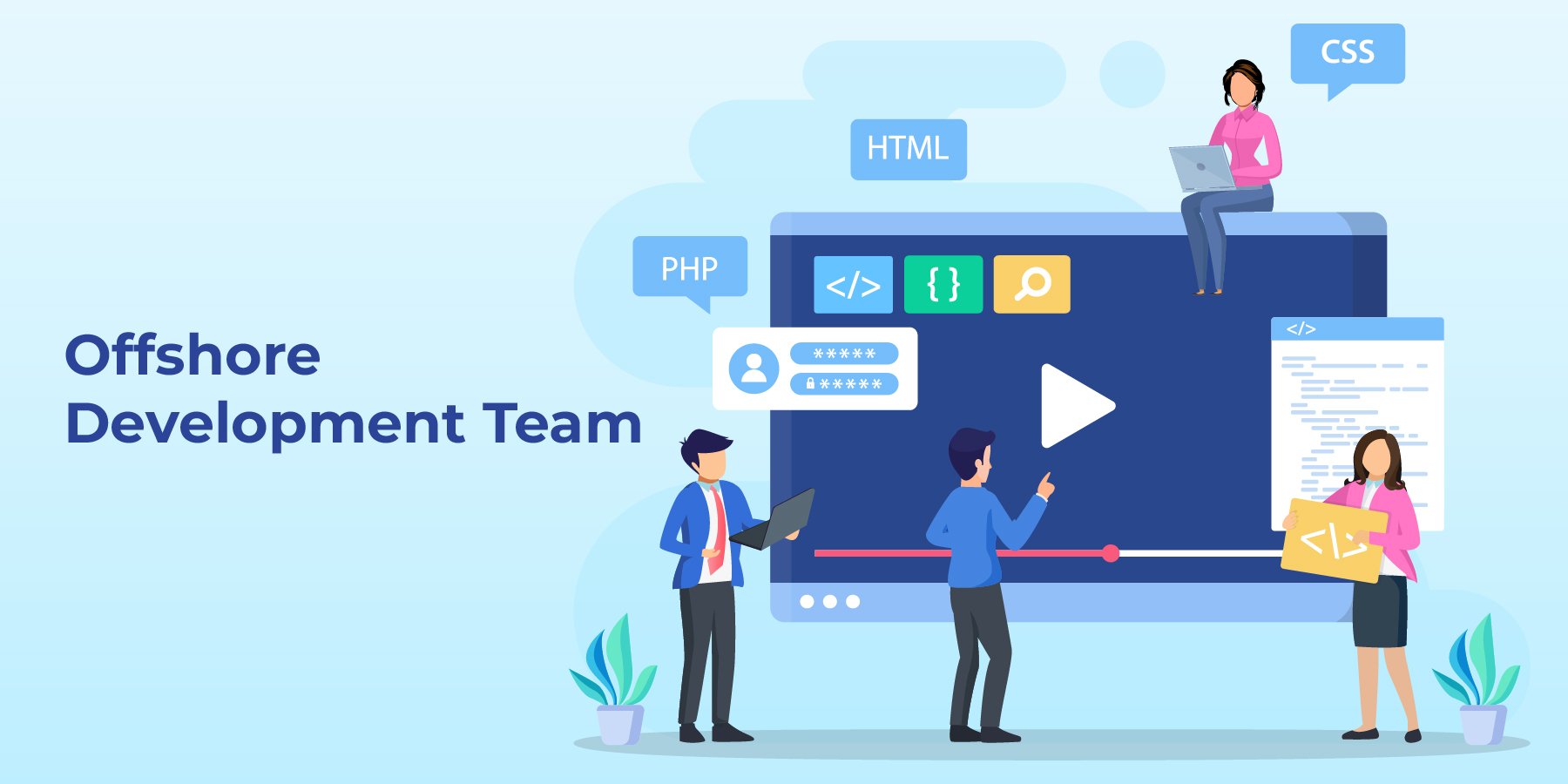Last updated on August 11th, 2025

Outsourcing offshore development teams has become increasingly popular in business. It allows companies to leverage offshore teams’ expertise and resources to achieve their development goals more efficiently. In this article, we will explore the process of hiring a top-performing offshore development team and the key considerations to ensure a successful partnership.
Table of Contents
Definition of Outsourcing Development
What Is an Offshore Development Team?
Benefits of Outsourcing Development
Importance of Hiring a Top-Performing Offshore Team
Key Considerations Before You Hire an Offshore Team
Here are 10 Things You Should Look For While Finding The Offshore Team That Is Right For You
How to Assess an Offshore Team’s Technical Skills
Best Practices for Offshore Development
Frequently Asked Questions (FAQs)
Definition of Outsourcing Development
Outsourcing an offshore development team refers to delegating software development tasks and projects to external groups or companies in different geographical regions. It allows businesses to tap into global talent pools and access specialized skills that may not be available locally.
According to Dreamix, the global IT outsourcing market is projected to reach $591.24 billion by 2025, driven by demand for scalable tech talent and development speed.
What Is an Offshore Development Team?
An offshore development team refers to a group of software professionals located in a different country from the hiring organization, working remotely on a dedicated or project-based model. These teams function as an extension of the in-house workforce, providing technical expertise, scalability, and cost advantages.
There are typically two offshore team structures:
Dedicated Offshore Team:
This team works exclusively on your projects, often integrating fully with your internal team. It’s ideal for long-term development needs and ongoing collaboration.
Extended Team (Staff Augmentation):
In this model, offshore developers are added to your internal team to fill skill gaps or boost capacity temporarily. You retain full control over the development process while scaling resources flexibly.
A typical offshore team includes roles such as:
- Front-end and back-end developers
- QA engineers and testers
- UI/UX designers
- Project managers and scrum masters
DevOps or cloud specialists (as needed)
Organizations hire offshore teams to access global talent, accelerate development, and reduce costs, without compromising quality.
Benefits of Outsourcing Development
Outsourcing offshore development teams offers several advantages to companies. Firstly, it provides access to a broader talent pool, enabling organizations to find experts in specific technologies or domains. Additionally, outsourcing can help reduce costs, as offshore development teams often offer competitive rates. Moreover, outsourcing allows businesses to focus on their core competencies while delegating non-core activities to external partners.
Importance of Hiring a Top-Performing Offshore Team
When working on a software development project, it is crucial to hire offshore development team with expertise. The success of your project depends on the skills, expertise, and dedication of the team you choose to work with. A top-performing offshore development team will deliver high-quality results and ensure effective communication, timely delivery, and a seamless collaboration experience.
Key Considerations Before You Hire an Offshore Team
Before you begin your offshore development team hiring process, it’s critical to assess your internal goals, timelines, and capacity for managing remote collaboration. Rushing into outsourcing without strategic planning can result in misalignment and missed expectations.
Here are some essential steps to follow as part of the best practices for offshore hiring:
Define Your Deliverables and Tech Stack
Clearly outline the scope of work, desired outcomes, timelines, and the technologies required. This ensures the offshore team is aligned from day one and prevents mid-project miscommunication.
Choose the Right Offshore Region
Different regions offer distinct advantages in terms of cost, skill availability, language fluency, and time zone compatibility. Popular offshore hubs include:
- Asia (India, Philippines, Vietnam): Cost-effective and vast talent pool
- Eastern Europe (Poland, Ukraine, Romania): Strong technical expertise and cultural alignment with Western clients
- LATAM (Mexico, Brazil, Colombia): Ideal for U.S.-based companies needing nearshore collaboration
Decide Between Freelancers and a Dedicated Offshore Agency
Freelancers may work for short-term or one-off projects but lack scalability, reliability, and structure. On the other hand, a dedicated offshore development agency provides a full team, project oversight, process transparency, and long-term partnership potential.
Taking the time to evaluate these factors sets the foundation for a successful outsourcing experience and ensures your offshore development team hiring decisions align with long-term business goals.
Here are 10 Things You Should Look For While Finding The Offshore Team That Is Right For You
You must start by defining your project requirements before you hire dedicated remote teams. Determine the specific skills, technologies, and expertise you seek in the group. Once you understand your needs clearly, begin researching offshore development companies. Look for companies that have experience in your industry and positive client testimonials.
1. Assessing Quality and Communication
When evaluating offshore development companies, considering the quality of their work is essential. Request samples or case studies to review their previous projects. Additionally, effective communication is crucial for successful collaboration. Ensure that the offshore development team has reliable communication channels and proficiency in the English language. Cultural fit is also essential to establishing a smooth working relationship.
2. Managing Time Zones and Collaboration
One of the challenges of working with an offshore development team is the difference in time zones. However, with proper planning and scheduling, this challenge can be overcome. Establish regular meetings that accommodate the time zones of all team members. Utilize collaboration tools that facilitate real-time communication and document sharing to enhance collaboration across different locations.
3. Nurturing a Long-Term Relationship
Building a long-term relationship with your offshore development team is beneficial for future projects and ongoing support. Focus on building trust and rapport by establishing open and transparent communication channels. Ensure that the offshore development team understands your company’s values and goals. Scalability and flexibility are crucial when selecting an offshore team, as they allow for future expansion and adaptability.
4. Handling Intellectual Property and Security
Protecting your intellectual property is paramount when outsourcing development. Implement measures to safeguard your sensitive information and trade secrets. It is essential to have legal agreements and contracts that clearly outline intellectual property ownership and confidentiality provisions. Choose an offshore team that values data security and has robust security measures.
5. Optimizing Cost and Budget
Comparing cost structures is essential when outsourcing development. While cost shouldn’t be the sole deciding factor, evaluating the value for money offered by different offshore development teams is crucial. Beware of hidden costs that may arise during the development process. Transparent pricing models and agreements can help you avoid unexpected financial burdens.
6. Onboarding and Integration
The onboarding process ensures a smooth transition when working with an offshore development team. Provide comprehensive project documentation and conduct knowledge transfer sessions to familiarize the team with your project’s requirements. Integration with existing team members should also be seamless, promoting collaboration and effective communication.
7. Managing Project Scope and Changes
Setting clear project goals and scope is essential for successful development. Communicate your expectations and deliverables to the offshore development team. Agile project management methodologies can help you adapt to changes and challenges that may arise during the development cycle. Foster a collaborative environment that encourages proactive communication and problem-solving.
8. Ensuring Support and Maintenance
Post-development support and regular maintenance are critical aspects of any software project. When hiring an offshore team, ensure they provide reliable support services after the project’s completion. Service level agreements (SLAs) can help define the scope and terms of ongoing support. Regular updates and maintenance are necessary to keep your software secure, efficient, and up-to-date.
9. Case Studies and Success Stories
Examining case studies and success stories of offshore development projects can provide valuable insights into the benefits and outcomes of such collaborations. Look for real-life examples that align with your project goals and requirements. These case studies can help you understand the potential of offshore development and make informed decisions when selecting a team.
How to Assess an Offshore Team’s Technical Skills
A critical part of any successful outsourcing decision is conducting a thorough offshore team assessment. Technical skill evaluation ensures the developers you’re hiring can actually deliver high-quality code that aligns with your project goals and tech stack.
Here’s how to effectively assess technical capabilities before finalizing your offshore development team:
Code Review Samples
Request code snippets or access to GitHub repositories from previous work. Look for:
- Code clarity and readability
- Adherence to best practices and naming conventions
- Modularity and reusability
- Documentation and comments
This gives insight into their development standards and problem-solving approach.
Technical Interviews
Conduct one-on-one or panel interviews to evaluate how well the developers understand core technologies, architecture principles, and debugging. You can include:
- Live coding sessions
- Whiteboard problem-solving
- Framework-specific discussions (e.g., React, Node.js, Laravel, etc.)
Use standardized scoring rubrics for objectivity across multiple candidates.
Trial Project or Test Task
Assign a small, time-bound project that mimics real-life requirements from your system. This helps you evaluate:\n
- How well they understand requirements
- Turnaround time and code quality
- Communication during execution
- Ability to follow guidelines or collaborate with your internal team
This trial phase acts as a low-risk gateway to full engagement and helps you shortlist top-performing candidates.
Best Practices for Offshore Development
Implementing effective project management practices is crucial for successful offshore development. Embrace an agile approach that allows for flexibility and continuous improvement. Encourage open and transparent communication channels to bridge any cultural differences. Embrace the cultural diversity that an offshore team brings, as it can foster creativity and innovation.
Frequently Asked Questions (FAQs)
1. What is an offshore development team?
An offshore development team is a group of remote software professionals, typically based in another country, who work full-time on your project as an extension of your in-house team.
2. What does an offshore developer do?
An offshore developer builds, tests, maintains, and scales digital products for clients located in a different country, often as part of a larger outsourced team.
3. What is the purpose of ODC (Offshore Development Center)?
An Offshore Development Center (ODC) provides long-term, scalable, and cost-effective remote engineering support by functioning as a dedicated offshore extension of a client’s internal team.
Conclusion
Outsourcing development and hiring a top-performing offshore development team can significantly benefit companies in terms of cost efficiency, access to specialized skills, and increased productivity. By following the outlined steps and best practices, you can ensure a successful partnership with an offshore team. Remember to prioritize effective communication, protect intellectual property, and foster a long-term relationship based on trust and transparency.
Are you looking to hire dedicated remote developers? Recruit Ninjas is here for you. When you hire a remote team of developers with our help, we ensure they work with complete dedication and build a unique, tailored solution that completely drives your business, besides enhancing overall ROI, improving productivity, and cutting operational costs.
Want to Build a High-Performance Offshore Dev Team?
Our offshore hiring experts will guide you through team setup, assessment, and long-term retention.
Book a Free Offshore Hiring Strategy Call
Suggested Resources for Further Reading
Andrew Gray
Andrew Gray is the Senior Operations Manager at Vserve Amazon Listing Services, a position he's held since 2021. He is renowned for operational excellence, leading teams to achieve sales growth and enhanced customer service. Andrew's role is crucial in optimizing the company's operations and maintaining its reputation for efficient back-office solutions.

